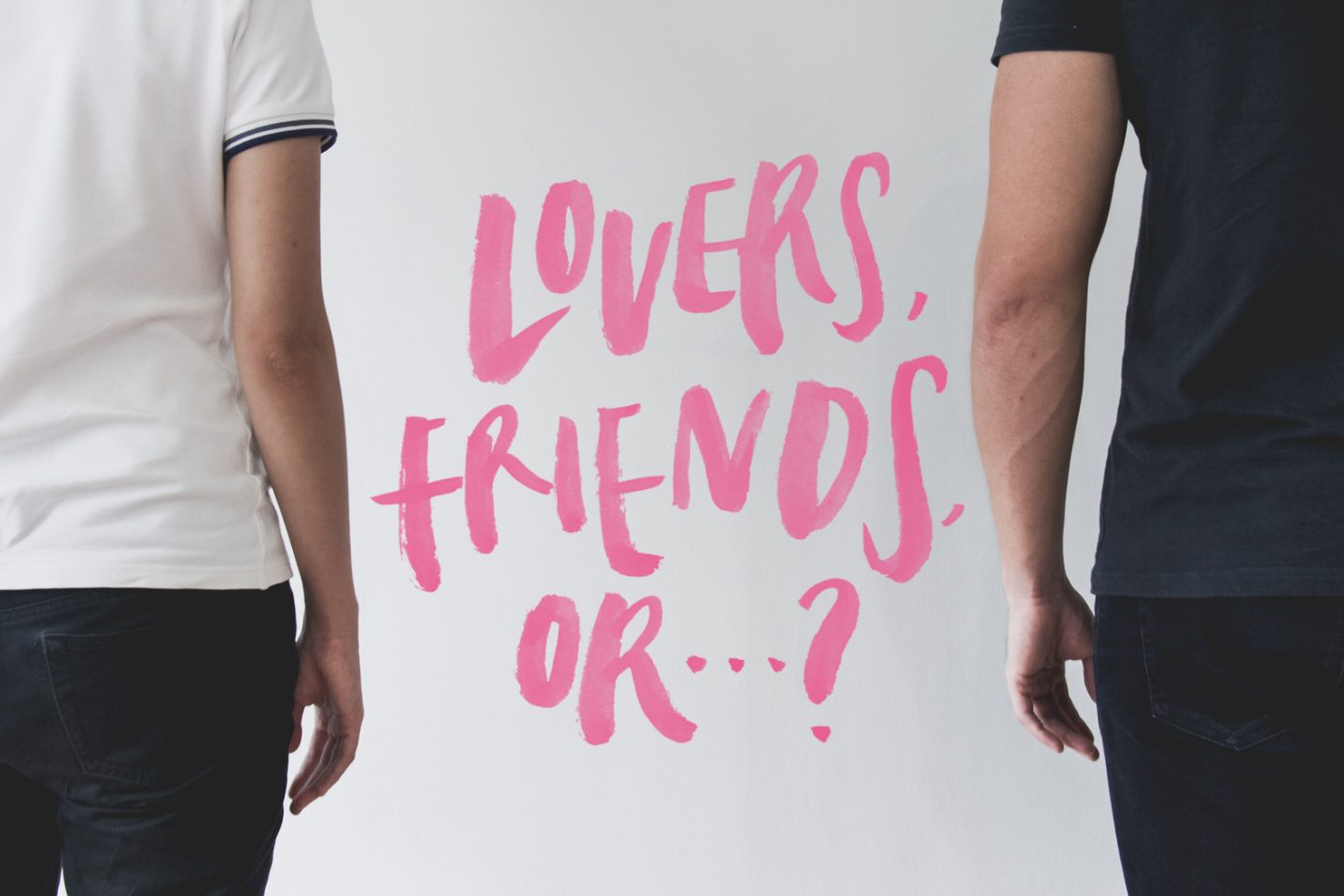“We’re just friends,” Esther (not her real name, to protect her dignity) insisted when I asked her about this guy she’d been hanging out with. They’d been out for brunches, movies and late night suppers for months. He’d walked her home in the dead of night, they’d bought each other gifts on random occasions and incessantly texted every single day.
Fast forward a year: Now Esther’s an emotional wreck after things “ended” with that guy. They fell out because she wasn’t happy that he was becoming close friends with other girls even though he and Esther weren’t “together”.
“This feels like a breakup,” she cried to me over the phone one night. “He never asked me to be in a relationship with him, so that leaves us as friends, right? But it still hurts like a breakup. I don’t know anymore.”
Red flags should have gone up when she insisted on staying “just friends” when it was clear something romantic was brewing. Esther ended up hurting so badly because she wasn’t honest with herself about what she wanted out of the friendship.
THE LIE OF “JUST FRIENDS”
When Esther first insisted they were just friends, I couldn’t help but feel sceptical. Did she really mean to say that they were friends, but that she was secretly hoping for more? The heart is deceitful above all things and beyond cure. Who can understand it?
The Bible instructs us clearly: Let your “Yes” be “Yes” and your “No” be “No”. For whatever is more than these is from the evil one (Matthew 5:37). Even notorious lothario John Mayer knew this, when he sang:
Friends, lovers, or nothing
We’ll never be the in-between, so give it up
Anything other than yes is no
Anything other than stay is go
Anything less than “I love you” is lying
Falling into the lie of just friends, Esther allowed herself to be stuck in limbo, where she not only wound up hurt but also became the centre of speculation and gossip.
The love in friendships – phileo – is highly unnatural because it doesn’t increase survival value. Yet it dramatically elevates the human experience.
Truthfully, we can never be just friends, because we were created for something more, something greater. We were made to share unconditional familial ties as brothers and sisters first. But “just friends” isn’t the same as being “brothers and sisters”. It’s a sign of us being aware of the potential of something romantic happening. “Just friends” implies that mere friendship is the lesser desired option compared to a relationship.
Esther’s failure to honestly identify her own true motives behind the friendship led to her eventually feeling as though she was going through a breakup.
LOVE, ACTUALLY
In the words of C S Lewis, friendship “has no survival value; rather it is one of those things which give value to survival”. Often considered the highest form of human love, the love in friendships — phileo — is highly unnatural because it doesn’t increase survival value. Yet it dramatically elevates the human experience.
When we view relationships with our very human and tainted eyes, this is where the problem begins. By using modern dating practices and romantic qualifiers portrayed in the media to measure the extent and depth of our relationships, we are choosing to needlessly segment the body of Christ. We begin to see a need to label each and every relationship that we have. In every boy-girl friendship we leave room to wonder if there is potential for “something more”.
In our fixation on categorising every relationship, we are missing out on what is truly something more. We preclude the possibility of sharing the familial and unconditional love that each of us needs, and through which the world gets to experience the love of Christ (John 13:35).
So, set the boundaries that each of us know we should have, but remember: We should never aim to be “just friends”, because we called to be so much more. Be as honest as we can with ourselves, and as blameless as we can be in our relating with friends. But don’t let the culture of the world — a culture which is increasingly infiltrating the Church, sadly — and its obsession with Hollywood pipedreams of “romance” drown out the need for real, kindred and unconditional friendships with one another.









